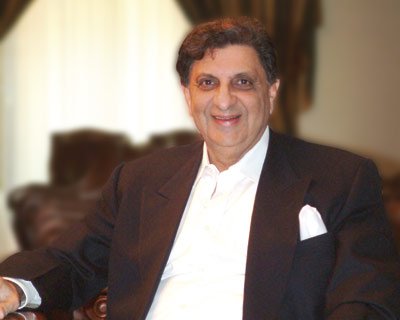We are going to reduce Injectible Polio Vaccine cost, says Dr Cyrus Poonawalla
15 July 2013 | Influencers | By BioSpectrum Bureau

Dr Cyrus Poonawalla, chairman, Serum Institute of India (SIIL)
Pune-based Serum Institute of India (SIIL), one of the largest providers of affordable quality vaccines in the world, has maintained its growth trajectory with a whopping growth of 39 percent over the previous year. Thus, Serum Institute retained its numero uno position in the Indian biotech industry while recording revenues of $2.06 billion (Rs 2,374 crore).
In 2012, SIIL bagged major vaccine orders not only from the UN agencies, but also expanded their reach in the private markets and acquired a Dutch vaccines firm. Industry insiders attribute the success of SIIL in the vaccines space to the vision of its chairman Dr Cyrus Poonawalla, who built facilities with large capacities, that in turn helped lower the prices of many vaccines. Here, Dr Poonawalla talks about how SIIL plans to bring down the price of injectible polio vaccines and more. Excerpts from the interview.
Which vaccines would you attribute SIIL's growth to, this year?
Dr Poonawalla: We attribute this year's growth, mainly, to the global take-off of Pentavalent vaccine and meeting more than two third of the world's requirements. In addition to this, there was a catch-up/eradication campaign by the UN agencies for Measles-Rubella [MR] vaccine. This added to our substantial jump in turnover.
What role would SIIL's recently acquired Bilthoven Biologicals play in reducing the cost of Inactivated Polio Vaccine (IPV)?
We are going to reduce the cost of IPV through our wholly-owned subsidiary, Bilthoven Biologicals, and help them launch world polio eradication drive, first, by making the vaccine affordable on humanitarian grounds, and later by scaling up the production which has been the signature style of Serum Institute to reduce the cost and divide overheads.
What is the reason behind low Full Immunization national average (at 44 percent) in India, when two out of every three children are getting a vaccine from SIIL?
I think the national average is low because of lack of accountability and serious negligence on the part of the administrators in implementing the Universal Programme of Immunization properly. There is nothing short of lack of accountability and transparency which can be implemented to achieve this goal, especially when this can be achieved in Nepal, Bangladesh, Sri Lanka and Africa, why should India not able to implement this.
What are your short-term plans for SIIL? Would it follow the latest trend of FDI in pharma and look for foreign investors?
SIIL has already set footprints across the world in private market in various countries. Market expansion has been a part of ongoing strategic action plan of SIIL for a couple of years now.
What percentage of SIIL vaccines are used in domestic market?
We cater to all national requirements as per demand on priority basis. Besides, as our production capacities are very high and products are of international quality, we also export more than 80 percent of our vaccines.
What vaccines are under development currently at SIIL?
The vaccines that are currently under development at SIIL are Vero Rabies vaccine, Rota vaccine and Pneumococcal vaccine. They are under various stages of development in phase I/II/III.
Can you tell about talk about SII's plans for other biopharmaceutical products?
SIIL has already ventured into biopharmaceutical market with EPO, which is being marketed at most affordable price. Also, there are some other novel products in this segment, which are under various stages of development.












